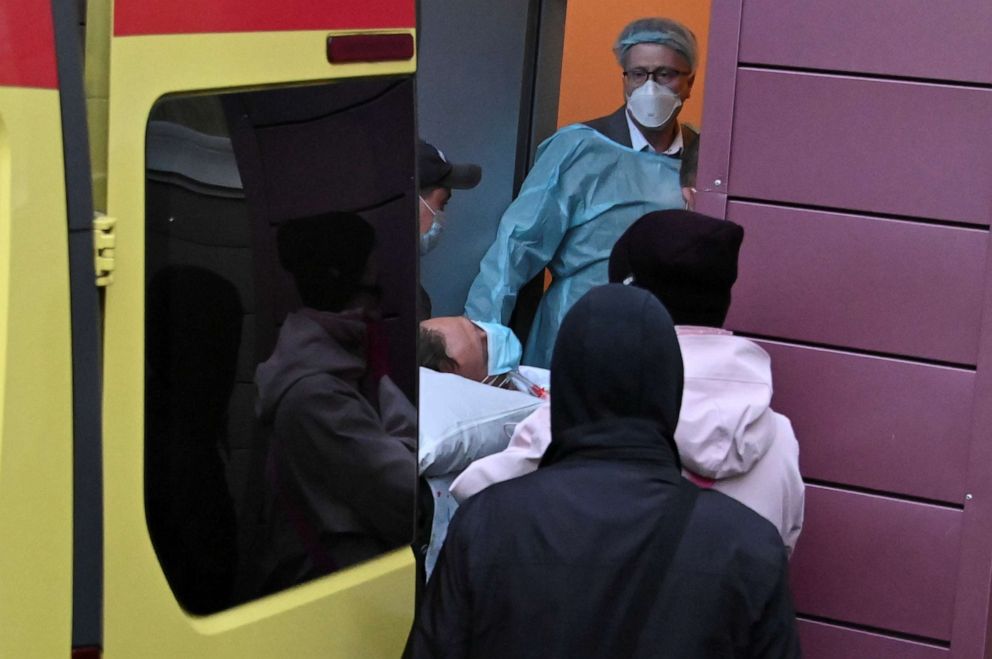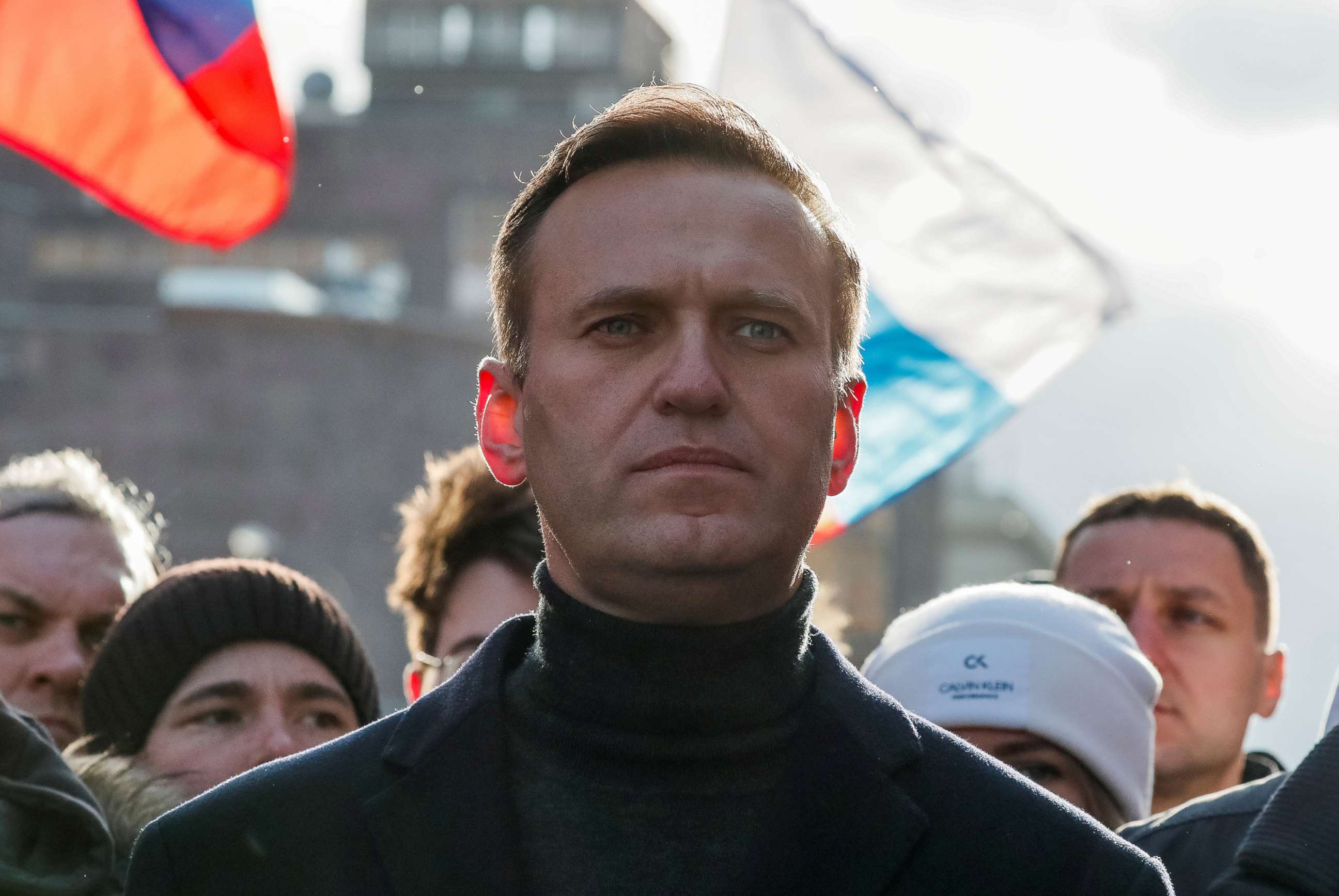Kremlin critic Alexey Navalny out of coma after 'severe' Novichok nerve agent poisoning
The long-term effects are too early to gauge, officials said.
LONDON -- Russia's most prominent opposition leader, Alexey Navalny, was taken out of a medically-induced coma and his condition "has improved," according to a statement from the German hospital where he's being treated.
Navalny, 44, was transferred from a Russian hospital to one in Berlin for treatment after falling ill while on a plane in Siberia more than two weeks ago. Germany's federal government announced last week that Navalny had been poisoned with a Novichok nerve agent, developed as part of a secret Soviet chemical weapons program.
"The patient has been removed from his medically-induced coma and is being weaned off mechanical ventilation," Charite University Hospital Berlin said in the statement Monday. "He is responding to verbal stimuli. It remains too early to gauge the potential long-term effects of his severe poisoning."
"The treating physicians remain in close contact with Mr. Navalny's wife," the hospital added. "After consultation with the patient's wife, Charite is reassured that the decision to make details of the patient’s condition public would be in accordance with his wishes."

Navalny, a dogged critic of the Kremlin, made his name through investigations of alleged corruption by powerful Russians, including top officials and some of President Vladimir Putin's inner circle. He also built a grassroots opposition movement that has helped lead some of the largest anti-Putin protests in Moscow in recent years.
The Russian doctors who initially treated Navalny have continued to claim that there was no evidence he had been poisoned. Navalny’s family and colleagues, however, have accused the Russian government of being behind his poisoning and seeking to cover it up.
Russia’s foreign ministry has since accused Germany of an "information campaign" and making allegations without evidence. German Chancellor Angela Merkel has demanded Russia provide an explanation in the case.

The so-called Novichok group of nerve agents was created by Soviet scientists before the collapse of the Soviet Union. A Novichok nerve agent was used to poison the ex-Russian spy Sergey Skripal and his daughter Yulia in the British town of Salisbury in 2018, an attack that U.K. authorities have said was carried out by agents from Russia's military intelligence agency. The Russian government has repeatedly denied the existence of Novichok.
"We have yet to find a substance that is more dangerous to the human body than the Novichok series," Gwyn Winfield, a chemical weapons expert with the publication CBRNe World, recently told ABC News. "There is no bulletproof vest that you can wear that can protect you from Novichok. It sends a very clear warning that to whoever might criticize [Putin’s] regime, in whatever country that they are in, that [Putin’s] sort of long hand will reach out and grasp them."
Following Germany's announcement that a Novichok nerve agent had been used in Navalny's poisoning, White House National Security Council spokesman John Ullyot said in a statement that "the United States is deeply troubled."
"Alexei Navalny's poisoning is completely reprehensible," Ullyot added. "Russia has used the chemical nerve agent Novichok in the past. We will work with allies and the international community to hold those in Russia accountable, wherever the evidence leads, and restrict funds for their malign activities. The Russian people have a right to express their views peacefully without fear of retribution of any kind, and certainly not with chemical agents."
ABC News’ Alina Lobzina and Patrick Reevell contributed to this report.




